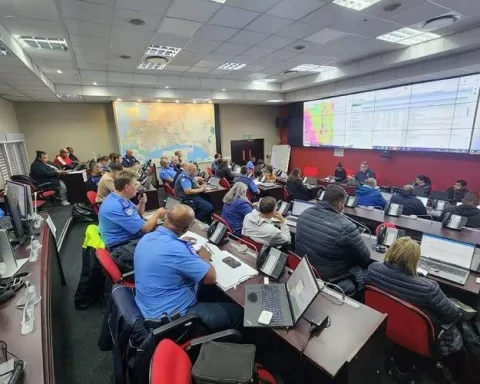On Monday, April 5th, tragedy struck the N3 highway near Hilton in the KwaZulu-Natal Midlands of South Africa. Reports indicate a multi-vehicle pile-up involving five trucks, eight minibusses, and 22 light motor vehicles occurred in the early morning hours. The incident resulted in at least five fatalities and several injuries. The tragic accident has caused the closure of both the northbound and southbound lanes of the N3 highway, resulting in significant travel disruptions for motorists.
The Aftermath of the Tragic Accident
Video footage and images of the accident have been shared on social media, revealing the extent of the damage caused by the crash. Witnesses and survivors have recounted stories of horror and disbelief, describing the scene as chaotic and devastating. Emergency services personnel, including the police, paramedics, and firefighters, have worked tirelessly to clear the wreckage and assist those involved in the accident.
The incident has highlighted the risks associated with traveling on South Africa’s highways, particularly during inclement weather conditions. The South African Weather Service has issued warnings about more inclement weather overnight and during the next few days, further adding to the risks faced by motorists. Despite the dangers, emergency services personnel continue to perform their duties with bravery and dedication, risking their lives to save others.
The Role of Emergency Services Personnel
The work of emergency services personnel is often overlooked, but in times of crisis, their importance cannot be overstated. These individuals are at the forefront of disaster response efforts, providing critical care and support to those in need. Their work involves responding to various emergencies, including fires, accidents, and natural disasters.
Emergency services personnel are trained to handle high-stress situations, working long hours in challenging conditions to provide assistance and care to those affected. Their work is often physically and emotionally demanding, requiring technical knowledge, compassion, and empathy. Yet, in times of crisis, their bravery and dedication inspire hope and support.
The recent accident on the N3 highway near Hilton in the KwaZulu-Natal Midlands is a stark reminder of the risks of traveling on South Africa’s busy streets. The incident has resulted in several fatalities and injuries, causing significant travel disruptions for motorists. Despite the challenges, emergency services personnel have continued to provide critical care and support to those in need, highlighting their bravery and dedication in facing adversity. As we reflect on this tragedy, let us appreciate the work of emergency services personnel and their role in helping us during times of crisis.












